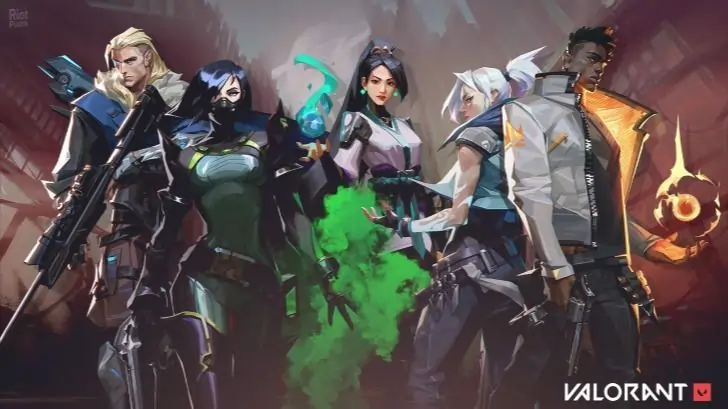
Valorant Review: Exploring the Tactical World of Valorant
Introduction:
Valorant, Riot Games’ foray into the tactical shooter genre, has taken the gaming world by storm since its release. Combining elements of classic shooters like Counter-Strike with unique character abilities akin to those found in Overwatch, Valorant offers a fresh take on competitive gaming. In this article, we delve into the intricacies of Valorant, examining its gameplay mechanics, character roster, and overall appeal.
Gameplay Mechanics - Valorant Review
At its core, Valorant revolves around tactical gameplay and precise gunplay. Matches are played between two teams of five players, with each round presenting opportunities for strategic decision-making. Players must coordinate their efforts, utilizing a combination of shooting skills, map knowledge, and character abilities to outmaneuver their opponents.
The game features a variety of weapons, ranging from pistols and rifles to sniper rifles and shotguns, each with its own unique characteristics and handling. Mastering the recoil patterns and weapon dynamics is crucial for success in Valorant’s fast-paced combat.
Character Roster - Valorant Review
One of Valorant’s standout features is its diverse cast of characters, known as “agents.” Each agent possesses a distinct set of abilities that can turn the tide of battle when used effectively. From healing and support abilities to offensive and defensive maneuvers, the agents offer a wide range of playstyles to suit different preferences.
Agents are divided into different classes, such as Duelists, Controllers, Initiators, and Sentinels, each fulfilling specific roles within a team composition. Learning the strengths and weaknesses of each agent is essential for crafting successful strategies and adapting to the ever-changing dynamics of a match.
Valorant Review:
To provide a comprehensive overview of Valorant review, let’s break down its key aspects:
| Aspect | Valorant Review |
|---|---|
| Gameplay | Valorant delivers a thrilling experience with its tactical gameplay mechanics. The emphasis on teamwork and strategy adds depth to each match, keeping players engaged and challenged. However, the high skill ceiling may deter newcomers initially. |
| Graphics | The visual design of Valorant is crisp and polished, with vibrant colors and detailed environments. The character models are distinct and well-animated, contributing to the overall immersion. |
| Sound Design | The sound design is top-notch, providing crucial auditory cues that enhance situational awareness. From footsteps to gunfire, every sound is meticulously crafted to convey vital information to players. |
| Community | The Valorant community is active and passionate, fostering a vibrant esports scene and a wealth of user-generated content. However, toxicity can occasionally mar the experience, particularly in competitive matches. |
| Replay Value | With its ever-evolving meta and regular updates, Valorant offers substantial replay value. The competitive ladder provides a constant challenge for players seeking to improve their skills and climb the ranks. |
| Overall Score | Valorant excels in delivering a tactical shooter experience that is both challenging and rewarding. While it may not revolutionize the genre, its polished gameplay and strong community make it a standout title. |
Conclusion:
In conclusion, Valorant stands as a testament to Riot Games’ ability to innovate and refine established genres. With its engaging gameplay, diverse cast of characters, and thriving community, Valorant has firmly established itself as a force to be reckoned with in the world of competitive gaming. Whether you’re a seasoned veteran or a newcomer looking for a new challenge, Valorant offers something for everyone to enjoy.

Valorant Review - Frequently Asked Questions (FAQs)
Valorant is a free-to-play team-based tactical shooter game developed and published by Riot Games. It combines precise gunplay with unique agent abilities, creating a strategic and competitive gaming experience.
The minimum system requirements for Valorant are:
- OS: Windows 7/8/10 (64-bit)
- Processor: Intel Core 2 Duo E8400
- RAM: 4 GB
- Graphics Card: Intel HD 3000
- DirectX: Version 11
- Storage: 8 GB available space
For optimal performance, it’s recommended to have a more powerful setup.
Agents can be unlocked by earning experience points (XP) through gameplay. As you level up your account, you’ll unlock new agents. Additionally, agents can also be purchased using Valorant Points (VP), which is the in-game currency obtained through microtransactions.
Valorant primarily offers the following game modes:
- Standard Unrated: Casual mode for practice and non-competitive play.
- Competitive: Ranked mode with skill-based matchmaking for competitive matches.
- Spike Rush: A shorter and more chaotic mode with random weapons and faster gameplay.
- Deathmatch: Free-for-all mode focused on improving aim and gunplay skills.
Valorant features an economy system where players earn credits by performing actions such as getting kills, planting or defusing the Spike, and winning rounds. These credits are used to purchase weapons, abilities, and armor at the start of each round. Managing your economy is crucial for success in Valorant.
As of now, Valorant is only available on PC. There are no official plans announced for console versions of the game.
Riot Games regularly updates Valorant with new maps, agents, balance changes, and content updates. Players can expect ongoing additions and improvements to the game over time.
No, Valorant is not a pay-to-win game. Microtransactions in Valorant are mainly for cosmetics such as skins, weapon charms, and player cards. Gameplay elements like agents and weapons can be unlocked through gameplay progression without spending money.
